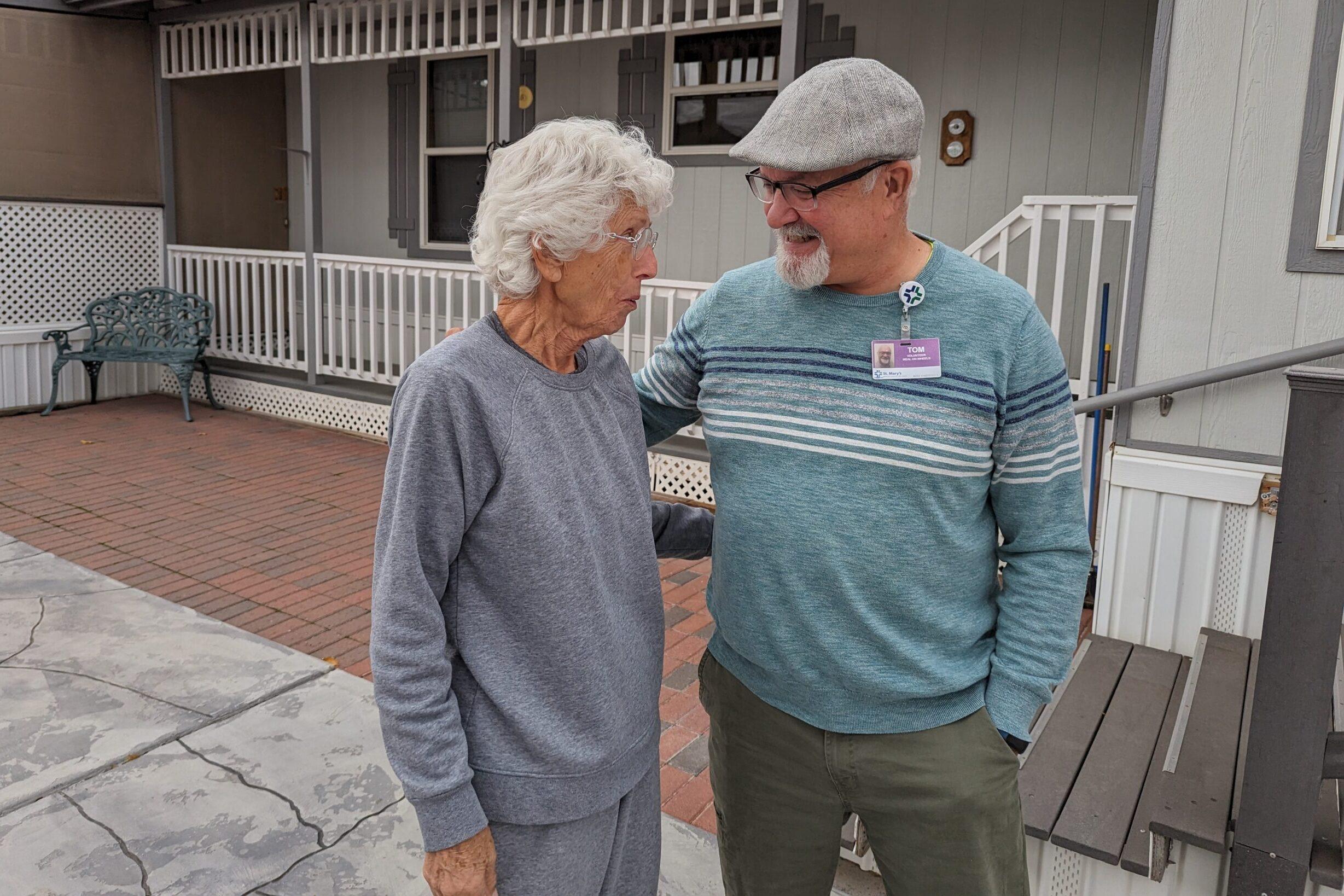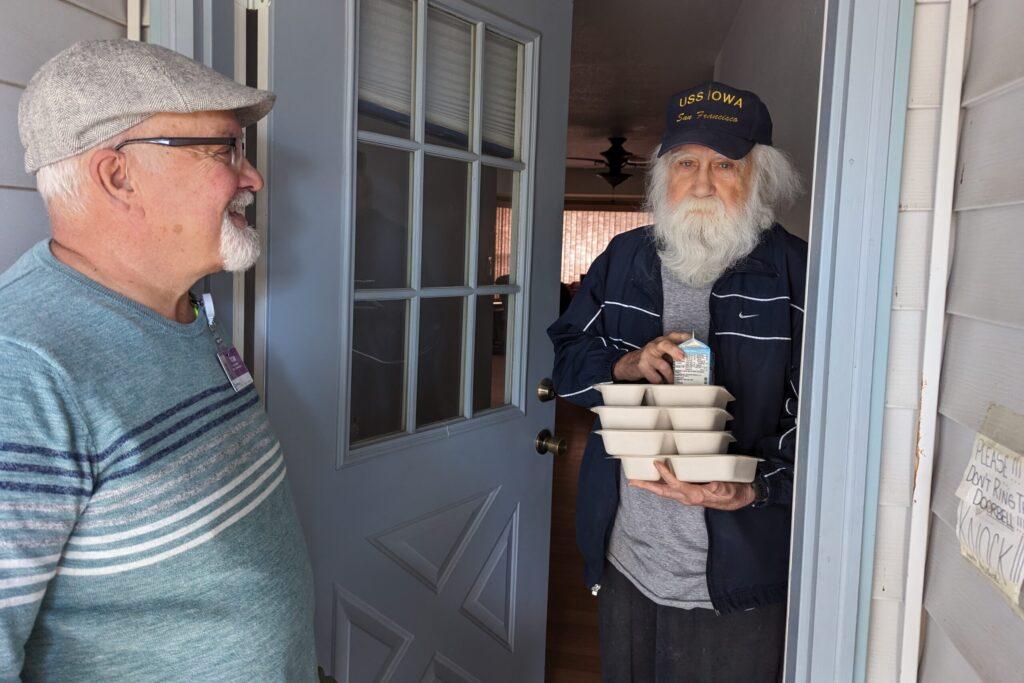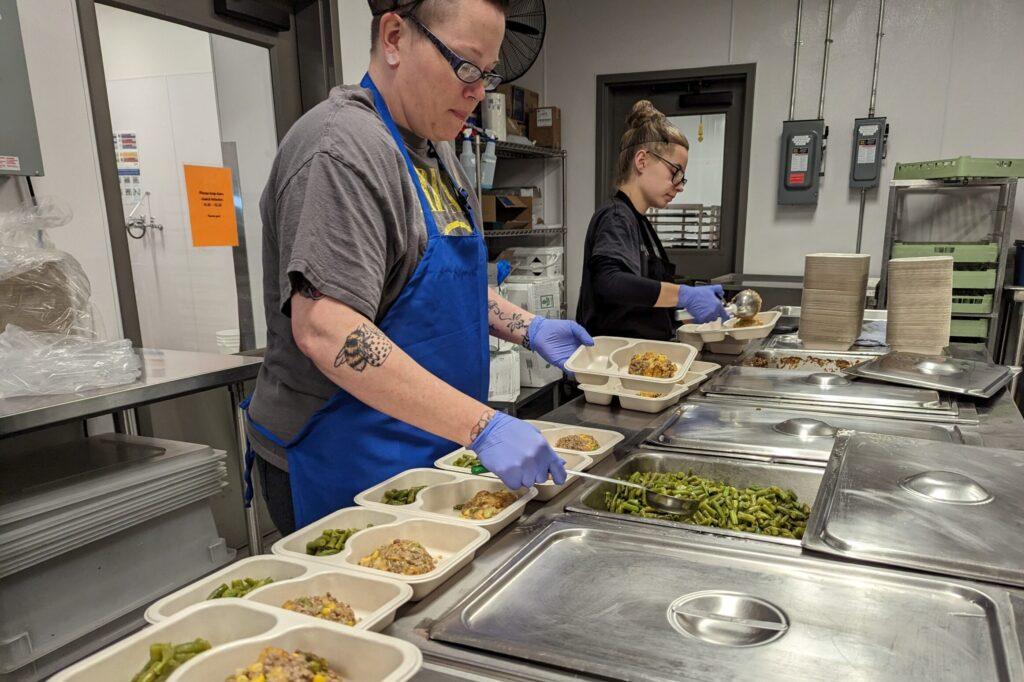
As of the beginning of November, 123 Mesa County residents who have requested delivery of hot food through the Meals on Wheels program have been told no. Not yet, anyway.
“It really is heartbreaking because a lot of these people, it's very hard for them to ask for help in the first place,” said Amanda de Bock, director of Mesa County Meals on Wheels. “To get them to make that phone call, to get them to fill out the paperwork, to ask for that help, and then to have to turn around and tell them ‘No, that you have to wait.’ It is very, very difficult.”
Mesa County’s extensive wait list has been Exhibit A for local politicians and aging advocates alike who say funding for senior programs of all kinds has not kept pace with a rapidly aging Colorado. Mesa County Commissioners and the Colorado Association of Area Agencies on Aging asked the state to increase senior services funding.
In an October letter to Gov. Jared Polis, Mesa County Commissioners noted that one in five Coloradans are over the age of 60. In Mesa County, that number is one in four.
“One particular individual on the waitlist is a 95-year-old veteran who endured a recent leg amputation,” the commissioners wrote. “The State must recognize the need to dramatically increase funding for these services to meet the ongoing and rising needs due to the rapidly aging population.”
The Area Agencies on Aging, which works to keep seniors in their homes through a myriad of programs, is seeking a $5 million base increase in funding and a classification change that would tie that funding to inflation. While Colorado’s next budget is ultimately in the hands of the legislature, the increase was not included in Polis’ budget proposal released at the beginning of November.
A spokesperson for Polis said: “The Governor and the Department of Human Services will continue to work with the AAAs and other local leaders to map out a sustainable path forward as Colorado’s demographics continue to shift.”
"I just wouldn't eat"
Laure Means lives in Fruita and receives Meals on Wheels deliveries. At 84, she says it’s difficult just to keep her weight up.
“I think there's a lot of people that if they didn't have this, they would really have a bad problem,” Means said. “And without this, well, I probably would be another 10 to 15 pounds less than what I am because I just wouldn't eat.”
Tom Baker drops food off for Means during his volunteer days with Meals on Wheels. He moved to Colorado from the Bay Area to help care for aging relatives and has a strong rapport with the clients he visits.
“A lot of people have told us … thank you so much for this. We would not be able to live on our own without you guys delivering meals to us,” Baker said.

One of those clients is Richard Hiatt, a retired Navy veteran who lives in Fruita with his wife, Molly. Baker has helped Hiatt track down replacement medical supplies and will bring his trash can back up to the house after pickup days.
“This is a real pleasure for us to be able to get this. And especially dealing with people like Tom (Baker) who's done a lot of things for me. And I just enjoy the heck out of it,” Hiatt said.
But, for the hundreds of clients that Mesa County Meals on Wheels serves, there are scores of others waiting for these deliveries. De Bock says it’s not a matter of volunteers or capacity, just funding.
“The money's not there. That is the issue. There's very few issues that are just one fix,” de Bock said. “So many things are so nuanced and there's so many things that go into it and so many things that you've fixed. And this is not one of those issues. It is, simply, we need money.”
A funding cliff is approaching
The money was there for a while. During the early years of the COVID-19 pandemic, a rush of federal funding to senior services meant program managers weren’t having to triage requests for food based on age and need.
“For the first time in years, I didn't have a waitlist. When you give us the money, look at the amazing things that we could do,” de Bock said.
Mesa County Meals on Wheels gets a large chunk of its funding from federal and state coffers. That’s not true of every county’s homebound meal service. Some are funded through hospitals or foundations and many aren’t even called Meals on Wheels.
But, wait lists aren’t uncommon for other programs.
“I don't know a single program right now that really does not have a wait list of some capacity,” de Bock said.
Heather Jones, director of the Area Agency on Aging for Northwest Colorado, adds that the end of COVID-19 funds as well as state budget changes means the Area Agencies on Aging is taking a big step back.
“We're really going back to what our budget looked like in 2018,” Jones said.
That stepback is compounded by inflation, particularly when it comes to nutrition programs. Tish Salazar, who runs the Mesa County Meals on Wheels kitchen, says food purchasing has become its own puzzle.

“I'm trying to order in advance stuff that I know is hard to get. I try to order it when I can and have it in stock just to be prepared,” Salazar said.
Jones said programs have seen raw food costs climb by over 50 percent in the last two years. Meals on Wheels is seen as a part of keeping seniors in their homes, Jones said. It's often a component of being discharged from a health care facility after surgery to ensure recent patients are getting regular nutrition and check-ins as they recover.
However, it’s not just meals that Area Agencies on Aging provides. Jones notes that their services include a range of things, like providing alert systems or legal help that’s designed to keep residents independent and in their homes.
“The state of Colorado spends billions of dollars each year paying for individuals to get into assisted living or skilled nursing facilities. Whereas if we can do the area agencies on aging and maybe get them housekeeping or a lifeline in the home, we can really prevent or delay them from even going on to Medicaid because a lot of our individuals that we serve are those low-income individuals,” Jones said.
De Bock notes that Meals on Wheels can often be a “gateway” program for senior citizens to access services that would help keep them in their homes longer.
“It is just lunch. It's something that's really kind of easy to ask for. It is easy,” de Bock said. “So then it starts the wheels turning where they start thinking, ‘Oh, maybe I can have some other services come in. Maybe I can have somebody from Hilltop (Community Resources) come in twice a week and clean me. Maybe I can ask for more things.’”









